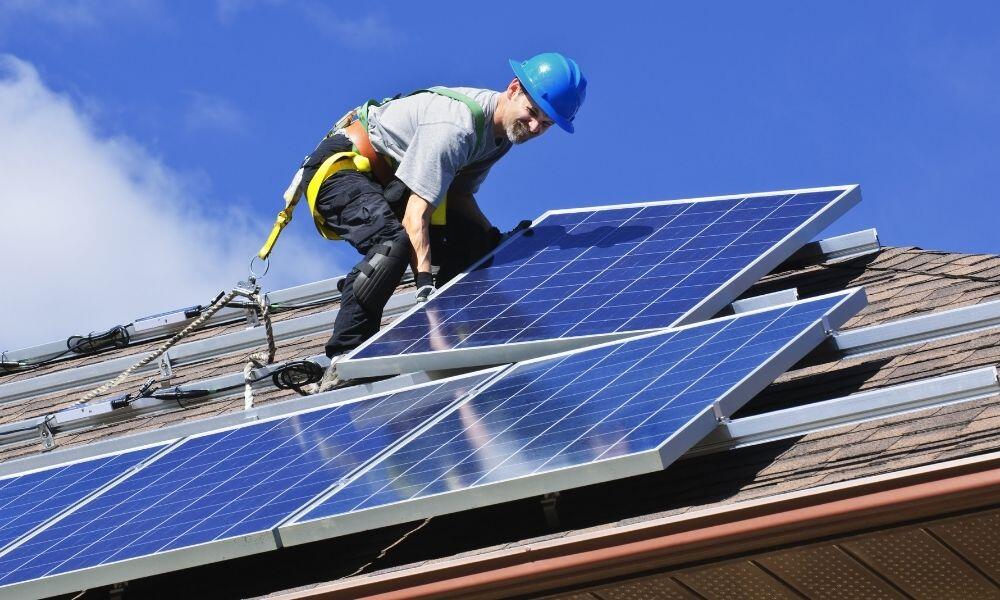Will I Still Have an Electric Bill with Solar Panels?

Aside from making a move to be more climate-friendly, the biggest reason people switch to solar is to cut down on the monthly cost of electricity. Many people opt for a partial supplementation of grid energy, but many others with enough rooftop space choose to install enough panels to generate 100% of their energy needs — or even more. However, even if you’re drawing all your power from your panels, you’ll still get an electric bill unless you disconnect from the grid entirely.
What Parts of My Bill Will Be Reduced or Eliminated?
Solar panels reduce or get rid of the charge for electricity delivery. Somewhere on your bill, you will see your electricity usage in kilowatt-hours, which is the section to which your solar savings will apply.
What Is Net Metering?
Net metering is a policy most utilities have, where you are billed for your net monthly use of grid electricity. If you generate 70% of your electricity from solar panels, then you’ll only pay for the remaining 30% you get from the grid. If you generate more electricity than your home uses and end up with negative usage on your bill, net metering will result in an electricity credit for the energy you sent into the grid. The credit carries forward to the next month.
Will NY, PA, VT, or OH Charge Me Just for Having Solar?
Even if your electricity usage is negative for the month, you will likely still see charges on your bill, and they will be reliant upon your utility company’s policies. Many companies tack on something like a “Basic Service Charge,” as well as taxes. Some states are more hostile toward solar and impose fees like Alabama Power’s Capacity Reservation Charge. If you’re interested in solar in the northeast, look at these state policies.
- New York: Starting in 2022, NY is implementing a new monthly “Customer Benefits Charge.”
- Pennsylvania: Utilities cannot charge net metering customers fees that they wouldn’t charge non-net metered customers.
- Vermont: Utilities bill a monthly customer charge simply for connecting to the grid, but there are currently no solar-only charges.
- Ohio: Utilities in Ohio aggressively propose increases in fixed costs in response to growing solar adoption, but few have stuck.
Why Solar Is Still Worth It
At the end of the day, you’ll still get an electric bill after going solar. Depending on how much electricity you generate, you can leverage net metering to avoid paying electricity usage costs. However, there will still be other charges applied by your state or utility company. That said, you can still save hundreds or thousands a year on top of the incentives you can get from the federal government.
Contact Solar Liberty for a free residential solar evaluation to see how solar can save you money on electricity!




